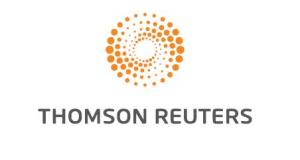Study Suggests Division, Ambivalence and Hesitancy to Change; Demographics Play Role
Americans lack confidence that healthcare reform will deliver more affordable or better quality medical care, according to a survey released today by the Thomson Reuters.
The study, which tracks consumer attitudes toward healthcare reform, addresses a wide range of issues including the cost and quality of healthcare, the prospect of higher taxes, and satisfaction with physicians and insurance coverage.
The analysis is based on a telephone survey of 3,007 households conducted from July 28 to August 9 – a segment of the Thomson Reuters PULSE Healthcare Survey, the nation’s largest and longest running privately funded survey exploring healthcare behaviors, attitudes and utilization.
Here are the key findings:
- Lack of Faith That Reform Will Improve Cost or Quality: A minority of survey respondents (37.9 percent) believes healthcare reform will improve the cost of care. Even fewer (30.3 percent) believe it will improve the quality of care.
- Ambivalence Regarding Federal Oversight: 44.5 percent believe the federal government should play an “active” or “very active” role in the oversight of healthcare, while 53.3 percent said the government should be “somewhat active” or “not at all active.”
- Most Believe Americans Should Get the Best Care, But Don’t: 71 percent of respondents agree or strongly agree that Americans are “entitled to the best healthcare available.” However, fewer than half (46.3 percent) believe the United States has the best healthcare system. More than one in four said they don’t know which country has the best care; 11.3 percent said it was Canada.
- Majority Satisfied with Status Quo: The survey asked respondents to rate their satisfaction with their healthcare providers, costs, and insurance coverage. About 80 percent said they were satisfied with their doctor, nearly 70 percent were satisfied with their health insurance coverage, and about 53 percent were satisfied with the amount they pay out-of-pocket for healthcare.
- Willing to Bear a Tax Increase: About 58 percent said they are willing to bear a tax increase (1 percent or more) to support healthcare reform.
- Demographics Matter in Healthcare Debate: An analysis of the survey results based on respondents’ age, gender, income and education found that only three demographic segments provided majority support for the provision that all Americans be required to have health insurance: those under 35, those earning less than $50,000 annually, and women. Meanwhile, the senior population, compared with other segments, showed a greater satisfaction with their healthcare providers and costs and a greater resistance to reform.
“It’s easy to see why there is considerable disagreement about healthcare reform. People are generally satisfied with what they have, skeptical that change will improve the system, and divided on the role the government should play,” said Gary Pickens, chief research officer for the Healthcare & Science business of Thomson Reuters and lead author of the study. “And we’re seeing wide variance of opinion across demographic profiles, suggesting it will continue to be challenging for legislators to find the middle ground.”
About Thomson Reuters
Thomson Reuters is the world’s leading source of intelligent information for businesses and professionals. We combine industry expertise with innovative technology to deliver critical information to leading decision makers in the financial, legal, tax and accounting, scientific, healthcare and media markets, powered by the world’s most trusted news organization. With headquarters in New York and major operations in London and Eagan, Minnesota, Thomson Reuters employs more than 50,000 people in 93 countries. For more information, go to www.thomsonreuters.com.
Media Contacts
David Wilkins
Public Relations Manager
Healthcare
Thomson Reuters
+1 734.913.3397
Source: Thomson Reuters, Inc.



